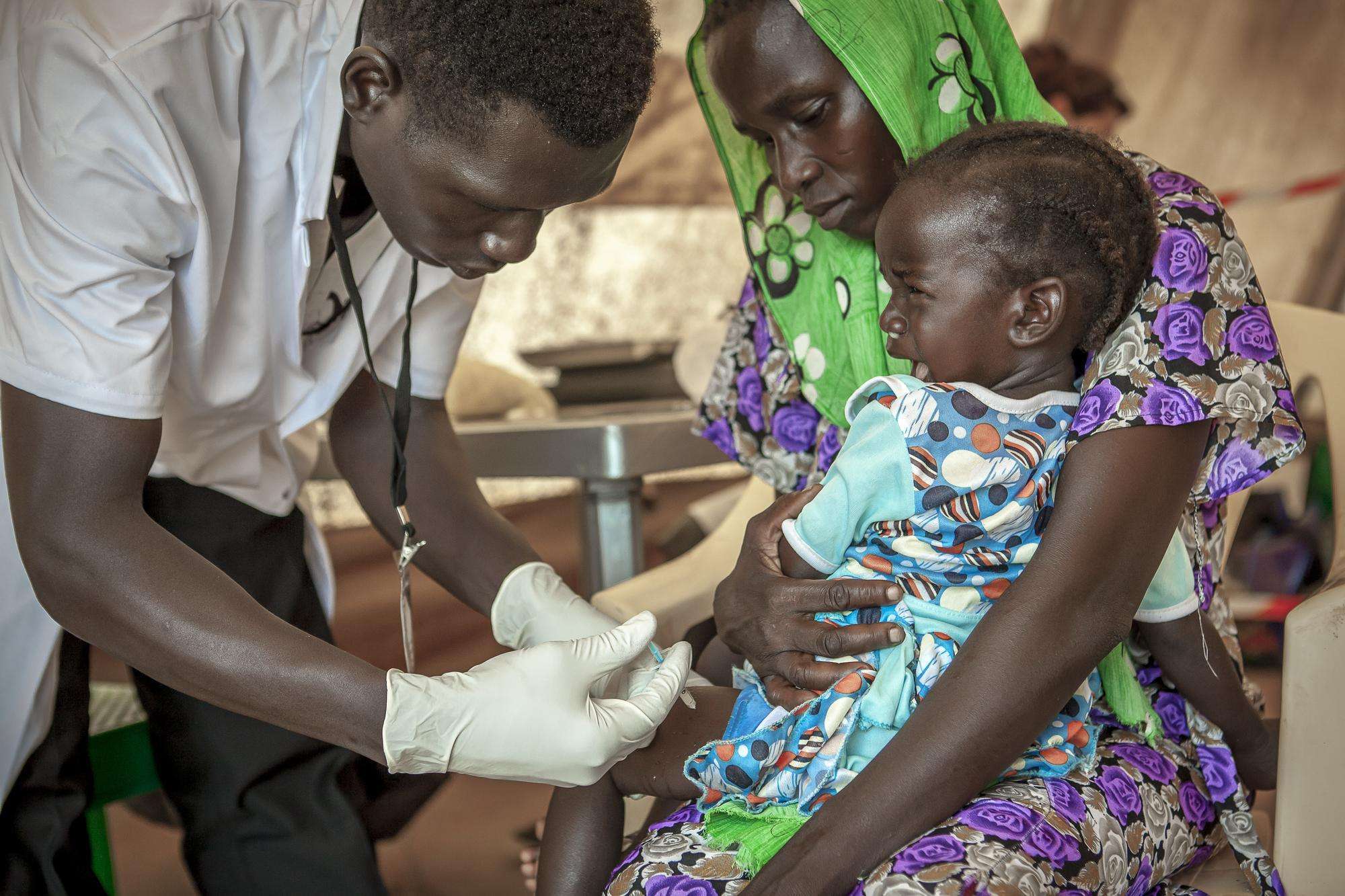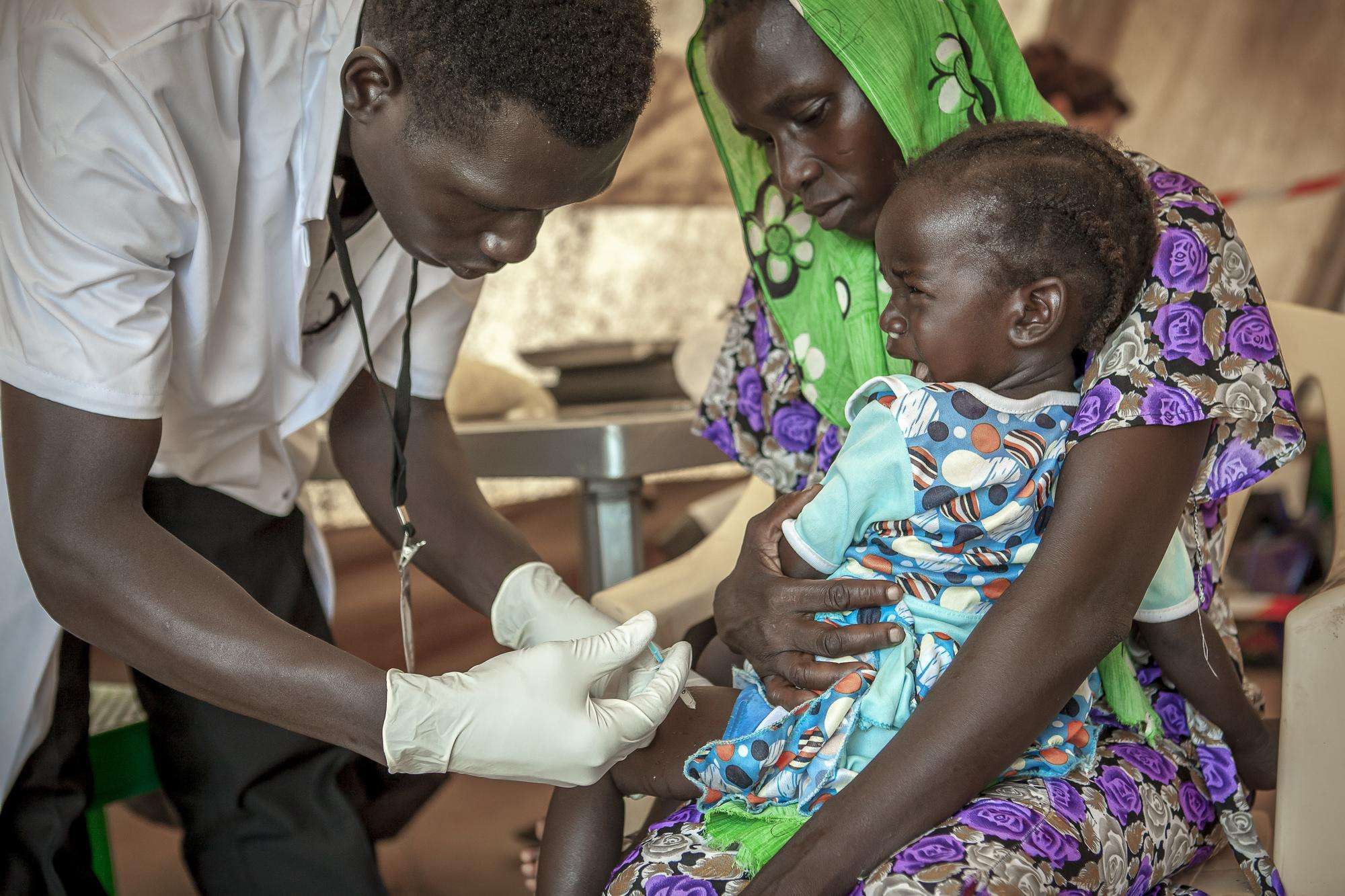This article was originally published on Huffington Post Impact.
There are a staggering number of babies born each year that do not receive the vaccines they need to protect them against childhood killers: 22 million. That's more than five times the number of babies born in the U.S. each year, or over four times the number born in the EU. Alarmingly, that number is on the rise.
While there have been significant achievements accomplished in the field of immunization, including by the GAVI Alliance -- a public-private partnership founded in 2000 and backed by billions in donor money -- to bring new vaccines to the poorest countries, persistent gaps have revealed that immunization needs a major booster shot.
Through its medical humanitarian work, Doctors Without Borders/Médecins Sans Frontières (MSF) has been delivering vaccines both in deadly disease outbreaks and through routine vaccination in our clinics for decades, often in places grappling with war and violence. A wake-up call about the fact that life-saving vaccines are not getting to children in some of the hardest-to-reach places, happened in the past several years when we began responding to repeated, massive outbreaks of measles. MSF vaccinated more than four million people in the Democratic Republic of Congo in 2010 alone.
Increasingly, we feel compelled to speak out about what we believe needs to change in the immunization world, both to make our work more effective and to decrease the number of children who miss out on the benefits of vaccines. As GAVI concludes its 'mid-term review' meeting -- where it reflected on its accomplishments over the last few years and looked ahead to how it will position itself in the future -- we think it's a good time to suggest several short- and long-term changes that could help reach more of the children who are missing out on life-saving vaccination. GAVI now has a real opportunity to change certain policies, push for easier-to-use products, and negotiate lower prices for vaccines.
First, humanitarian actors vaccinating in emergencies must be able to buy vaccines at the lowest global prices that have currently been negotiated by GAVI. We need to be able to act quickly when a crisis occurs, for example in a refugee camp setting where we see the number of child deaths on the rise that could be prevented by vaccinating. GAVI must open up access to its pricing for non-profit organizations and should develop a policy to ensure that new vaccines are also accessible to crisis-affected populations. Just this past summer, we finally were able to vaccinate children in a refugee camp in war-torn South Sudan with the pneumococcal vaccine.
MSF medical teams had identified that pneumonia was one of the leading causes of death in children in the camp. We had been trying for months to buy the vaccine at a price we could afford, but with no GAVI policy in place to facilitate access to lower negotiated prices for humanitarian organizations, and the pharmaceutical companies resistant to extend their lowest global prices to us, we spent eleven precious months in negotiations just to purchase and ship the needed vaccines to South Sudan. As an emergency medical organization, we don't have time to waste.
In 2012, Syria had the most significant decline in immunization program performance in the world: coverage with the basic package of vaccines dropped by 27 percent. This was followed by Iraq, which dropped by 10 percent. Children needing vaccines don't only live behind the neat borders of 'poor' countries that traditionally receive donor attention and support; they are also the children fleeing war and conflict, and living in refugee camps.
Second, GAVI needs to play a more active role in shaping the development of vaccine products that are easier to use in places with weak health systems. Today, the vast majority of vaccines still need to be provided by needle injection, which requires access to health staff with a certain level of training, and fully vaccinating a child requires a burdensome five trips to a clinic within a baby's first year of life. Plus, vaccines need to be kept at temperatures between 2 and 8 degrees Celsius (between 36 and 46 degrees Farenheit) until they reach the child. This is almost impossible in the tropical climates of many developing countries where temperatures easily soar above 40 degrees C (104 degrees F), and where a stable electricity supply is rarely a given.
As over 50 percent of health facilities in GAVI-supported countries have effectively no electrical supply, GAVI should use its significant financial weight and international voice to push for the development of better vaccine products for the countries it's aiming to support.
Third, GAVI needs to negotiate even lower vaccine prices with pharmaceutical companies. The cost to fully vaccinate a child has skyrocketed since 2001 , when it cost just $1.38 to provide a child protection against six diseases. Now the full vaccines package includes protection against eleven diseases, which is good news, but the price is $38 -- an astounding increase of 2,700 percent. And it's the newest vaccines which are disproportionately more expensive: the pneumonia and diarrhea vaccines account for more than 70 percent of the total cost of the vaccines package.
The market for new vaccines is dominated by three multinational pharmaceutical companies - Pfizer, Merck, and GlaxoSmithKline -- who are making billions of dollars on these new vaccines in the wealthy world. While the companies sell at 'deeply discounted prices' to GAVI, when the starting point is an already overpriced vaccine, GAVI must be more savvy in negotiating with companies and in using its tax-payer dollars to purchase vaccines from highly-successful pharmaceutical businesses. Not only is this important for the responsible stewardship of tax-payer money, but the prices that GAVI agrees to pay are inherited by poor countries when GAVI support eventually tapers off.
The trend in new and much more costly vaccines jeopardizes the sustainability of immunization programs. GAVI has a powerful voice in advancing measures that will increase transparency around the real cost of producing vaccines so that we can know if we're getting a good deal for the world's children. And GAVI can work with its partners to stop the alarming increase in vaccine prices. In return, GAVI should expect strong commitment and support from recipient countries to prioritize funding and support for vaccination programs.
MSF is a partner of the GAVI Alliance and fully supports its accomplishments in bringing life-saving vaccines to the poorest countries. With the advent of GAVI, the global vaccination community now sees more clearly where we need to collectively accelerate our work to reach the 22.6 million children missed by basic vaccination services. And now is the best time for GAVI to take a closer look at how it can improve its policies, push for easier-to-use products, and negotiate lower prices for vaccines to fulfill this potential. This is the urgent booster that the world's children are waiting for.
Dr. Manica Balasegaram is the executive director of MSF's Access Campaign.





